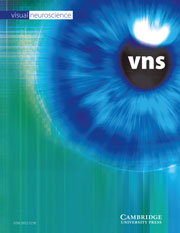No CrossRef data available.
Article contents
Suppression of voltage-dependent K+ currents in retinal bipolar cells by ascorbate
Published online by Cambridge University Press: 01 January 1999
Abstract
Ascorbate, often used as an antioxidant in neural studies, may also serve as a neuromodulator in the vertebrate central nervous system (CNS), in that it modulates the synaptic actions of glutamate and dopamine. Retina of fish contain a high concentration of ascorbate. The release and/or uptake of neurotransmitters are related to membrane potential, which to a large extent is determined by the activity of K+ channels. As retinal bipolar cells are subject to synaptic input from glutamatergic and dopaminergic sources, the effects of ascorbate on voltage-dependent K+ currents (IK(V)) of the mixed rod–cone ON-center bipolar cells (Mb) in goldfish retinal slices were studied using whole-cell recording techniques. IK(V) was suppressed reversibly 60% by 100–200 μM ascorbate. The effect of ascorbate was not due to changes in pH, oxidative stress, lipid peroxidation, any Ca2+-dependent or Na+-dependent action. However, the suppressive effect of ascorbate was blocked by cholera toxin and Wiptide, a protein kinase A (PKA) inhibitor. It is concluded that ascorbate, at physiological concentrations, inhibits IK(V) of bipolar cells via a GS-protein-PKA system. This effect of ascorbate should be taken into account when using ascorbate as an antioxidant in retinal studies involving dopamine.
- Type
- Research Article
- Information
- Copyright
- 1999 Cambridge University Press




